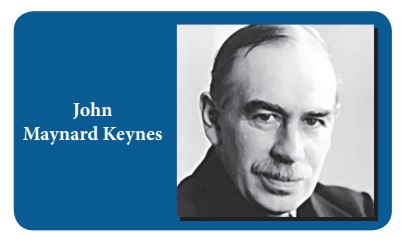Economics - Keynes’ Theory of Employment and Income | 12th Economics : Chapter 3 : Theories of Employment and Income
Chapter: 12th Economics : Chapter 3 : Theories of Employment and Income
Keynes’ Theory of Employment and Income
Keynes’ Theory of Employment and Income

Keynes’ book, “The General Theory of Employment, Interest and
Money” published in 1936 is a highly significant work that marked a turning
point in the development of modern economic theory.
The theory of Keynes was against the belief of classical
economists that the market forces in capitalist economy adjust themselves to
attain equilibrium. Keynes not only criticized classical economists but also
advocated his own theory of employment.
Keynes’ theory was a general theory as it tried to explain all
types of situations, i.e. not only equilibrium level of employment but also the
concept of full employment as well as the possibility of underemployment.
Keynes theory of employment was based on the view of the short
run. According to him, the factors of production such as capital goods, supply
of labour, technology and efficiency of labour remain unchanged while
determining the level of employment.
John Maynard Keynes was one of the most influential economists
of the 20th century. He was born in Cambridge in1883. In addition to his work
as an economist he held position as civil servant a director of the Bank of
England, and leader of British delegation of negotiators at the Bretton Woods
conference at points in his career. Economic theory based on his idea is known
as Keynesian economics, and remain highly influential today, particularly in
the field of macroeconomics.
Related Topics